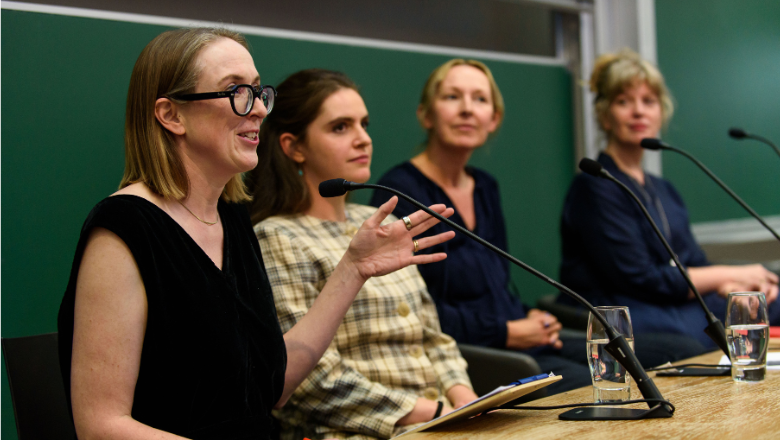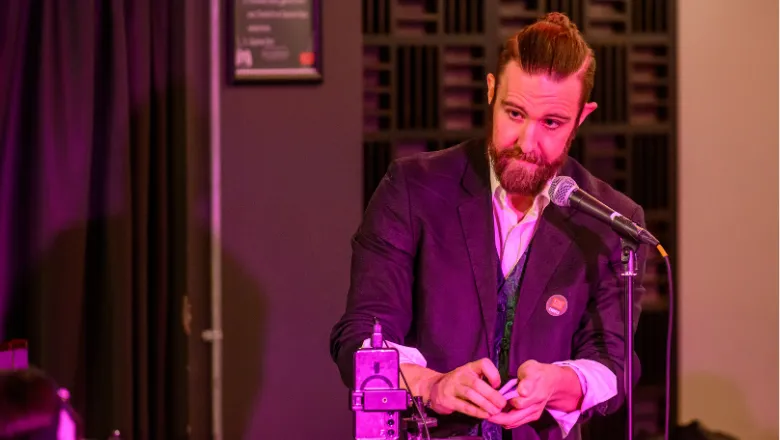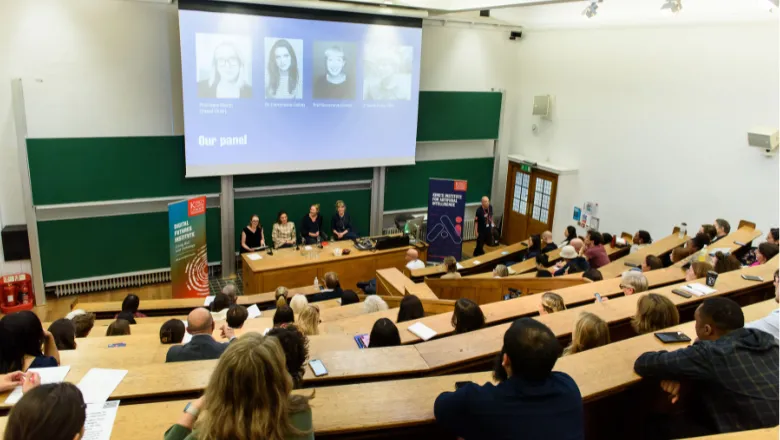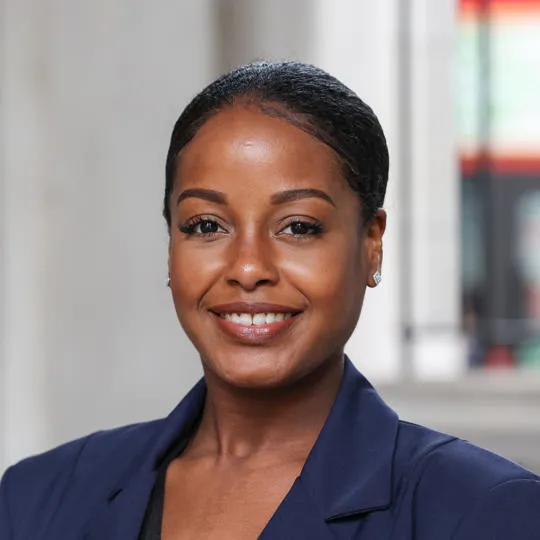The Digital Futures Institute series continues its Living Well with Technology series with a new season of events exploring the Digital Futures of a variety of topical themes.
Originating with AI: the Means to an End or a Means to the End?, the inaugural lecture delivered by the author, actor, broadcaster and comedian Stephen Fry, the Living Well With Technology series brings together experts from across the tech, health, policy, business, education and creative sectors to figure out how we can forge a more just, equitable and sustainable technological future.
In the new season, the events titled ‘The Digital Futures of…’ will explore the future of literature, magic, diversity, security, health, quantum, art and history to highlight the impact of technological development on various aspects of our lives.
We were keen to keep the original Digital Futures Institute’s idea for the public-facing events that put research into action and lead important conversations. As the former Chair-Director, Prof Marion Thain, planned, we hope that this will become a space for constructive debate, asking the big questions about the way people interact with and are impacted by technology. By spotlighting diverse voices and interdisciplinary research, we aim to foster dialogue that not only informs but also inspires action.
Professor Kate Devlin, Chair-Director, Digital Futures Institute
 Professor Kate Devlin speaking at the Digital Futures of Literature event, 21 May 2025. Credit: Richard Eaton
Professor Kate Devlin speaking at the Digital Futures of Literature event, 21 May 2025. Credit: Richard EatonDigital Futures of Literature
The series was officially re-launched on 21 May with a panel discussion The Digital Futures of Literature, in which experts from AI and literature sectors looked into the tension between AI as a productivity tool and the threat it poses to existing craft and skills.
The event, hosted by Professor Kate Devlin, featured Dr Clementine Collett, BRAID research fellow at the Minderoo Centre for Technology and Democracy at The University of Cambridge, Professor Genevieve Lively, Professor of Classics and Director of the Research Institute for Sociotechnical Cyber Security at the University of Bristol, and Dr Sarah Perry, Visiting Research Fellow in the Faculty of Arts & Humanities at King’s, Booker Prize-nominated bestselling novelist and Fellow of the Royal Society of Literature.
The panel discussion was part of the King’s Festival of Artificial Intelligence, hosted by the King's Institute for Artificial Intelligence.
 Dr Matt Tompkins at the Magic, Minds, and the Mysteries of AI event, 23 May 2025. Credit: David Tett
Dr Matt Tompkins at the Magic, Minds, and the Mysteries of AI event, 23 May 2025. Credit: David TettDigital Futures of Magic
Co-hosted by the Digital Futures Institute and King’s Institute for Artificial Intelligence as part of the King’s Festival of Artificial Intelligence, Magic, Minds, and the Mysteries of AI explored AI and deception.
Dr Matt Tompkins, a professional magician and a researcher in visual cognition at Lund University, performed a live magic show that delved into how we perceive and misperceive. Using mentalism and sleight of hand techniques, Matt revealed how easily we can be directed to notice or overlook unexpected events.
Following the performance, he joined Professor Kate Devlin for a conversation on the psychology behind magic tricks and how this relates to our understanding of black box technologies.
Digital Futures of Diversity
On 23 June, a multidisciplinary panel will examine how educational institutions, media organisations and businesses can harness digital technologies to create genuinely inclusive environments while navigating the complex challenges that digital transformation presents for diversity efforts across sectors.
The event will feature Birgit Neu, a UK-based independent Senior Advisor with expertise in inclusion strategy design, change management, research and communications practices, Lewis Iwu, CEO & Founding Partner at Purpose Union, who specialises in advising organisations on devising and executing winning arguments and campaigns on social and environmental issues, Professor Elisabeth Kelan, Professor of Leadership and Organisation at King’s Business School, whose research explores digitalisation and diversity at work, inclusive leadership, and gender in organisations, and Dr Nessa Keddo, Senior Lecturer in Media, Diversity and Technology at the Department of Culture, Media & Creative Industries at King’s, who is the department’s EDI Lead and has pioneered EDI strategies and technological change management within higher education and media industry.
This discussion is particularly timely as recent political and social developments in the United States and globally have brought renewed attention to issues of equity, inclusion, and representation in institutional settings. As organisations navigate these complex social contexts, understanding the role of digital technologies in either advancing or hindering diversity efforts becomes increasingly crucial.
Professor Kate Devlin, Chair-Director, Digital Futures Institute
Digital Futures of Security
On 23 July 2025, the Digital Futures Institute will explore the Digital Futures of Security. In this online panel, the experts from the fields of security, technology and artificial intelligence will look into how technology positively and negatively impacts the nation’s defences. The event will feature Tony Reeves, Partner at Deloitte and Lead Partner in Digital Defence and AI Strategy.
For more information on the upcoming events, see the Digital Futures Institute Events Calendar.








